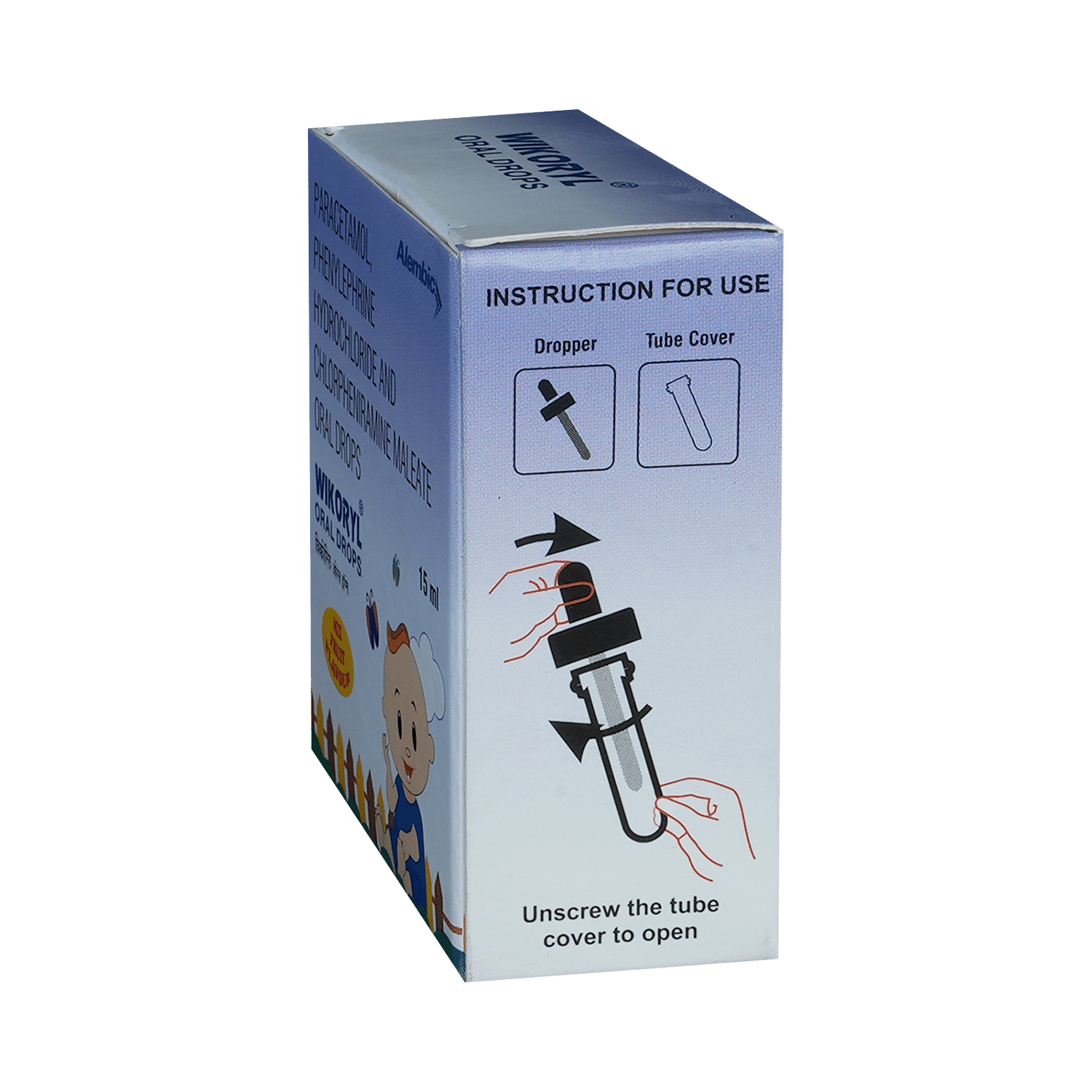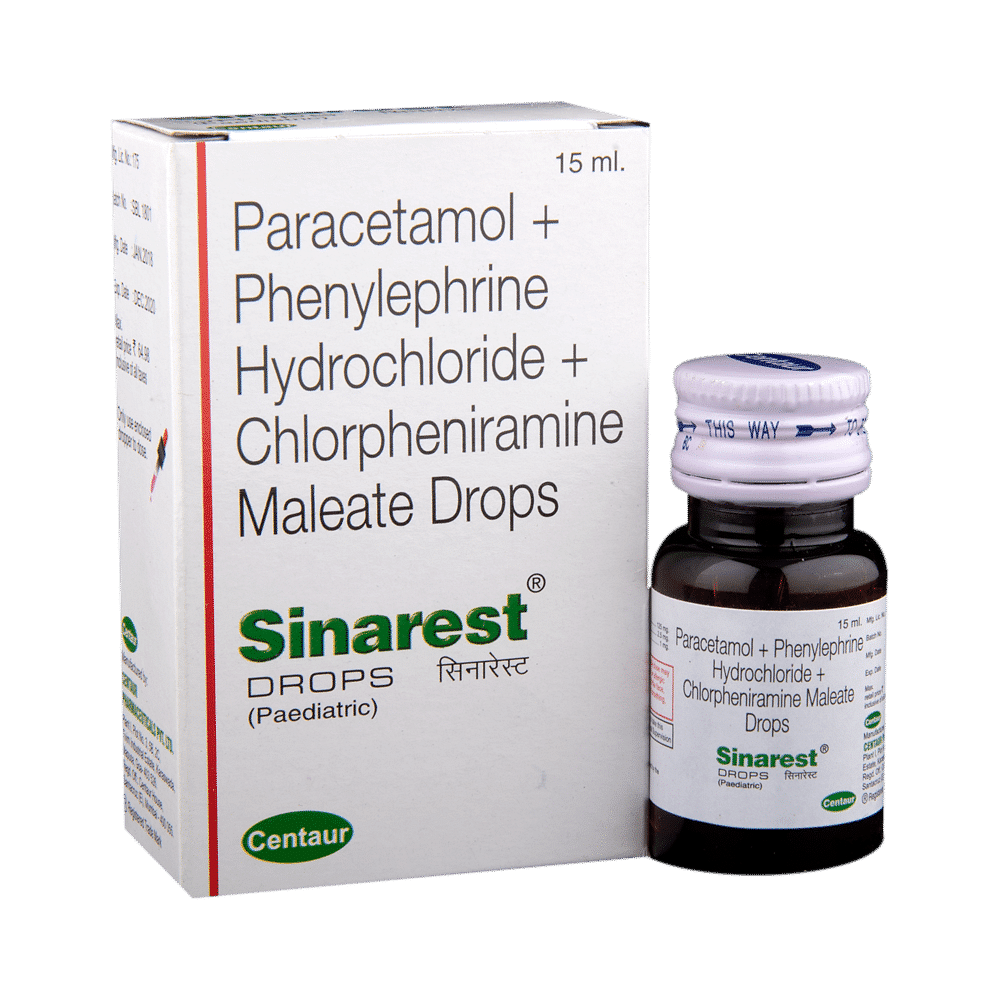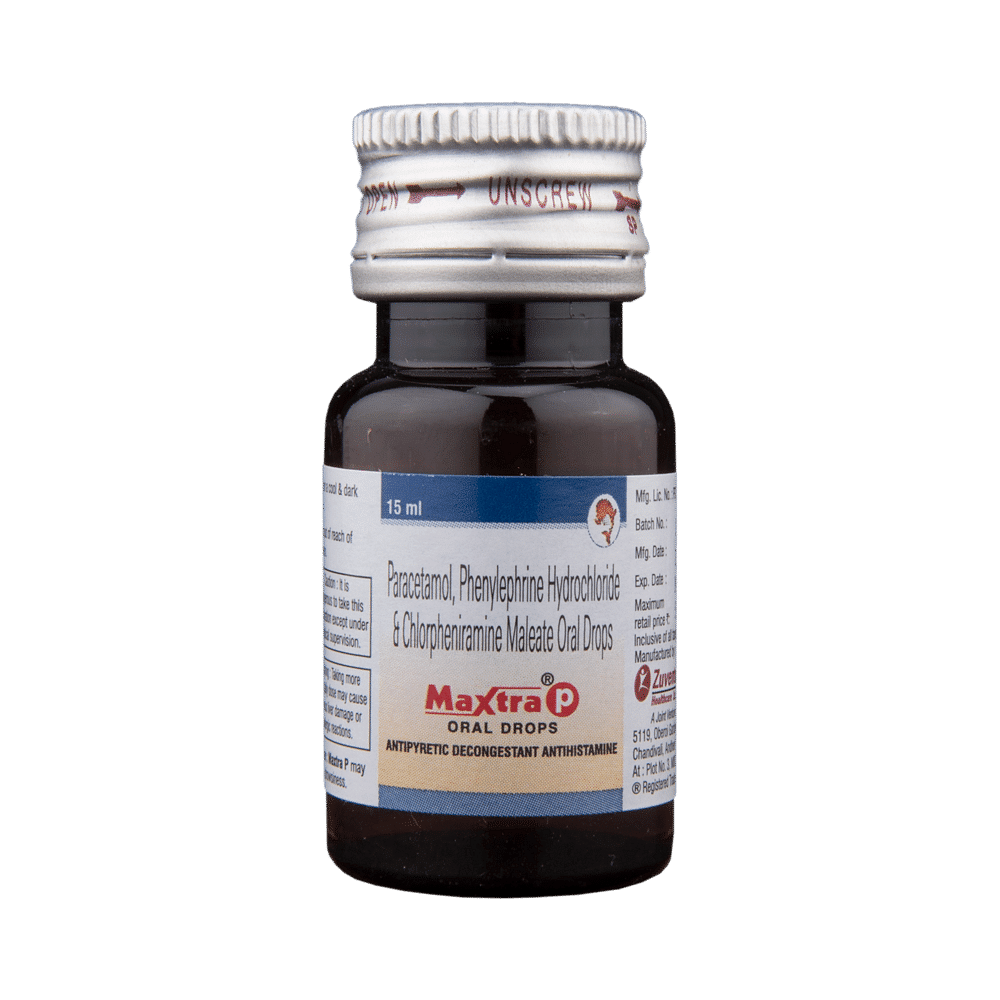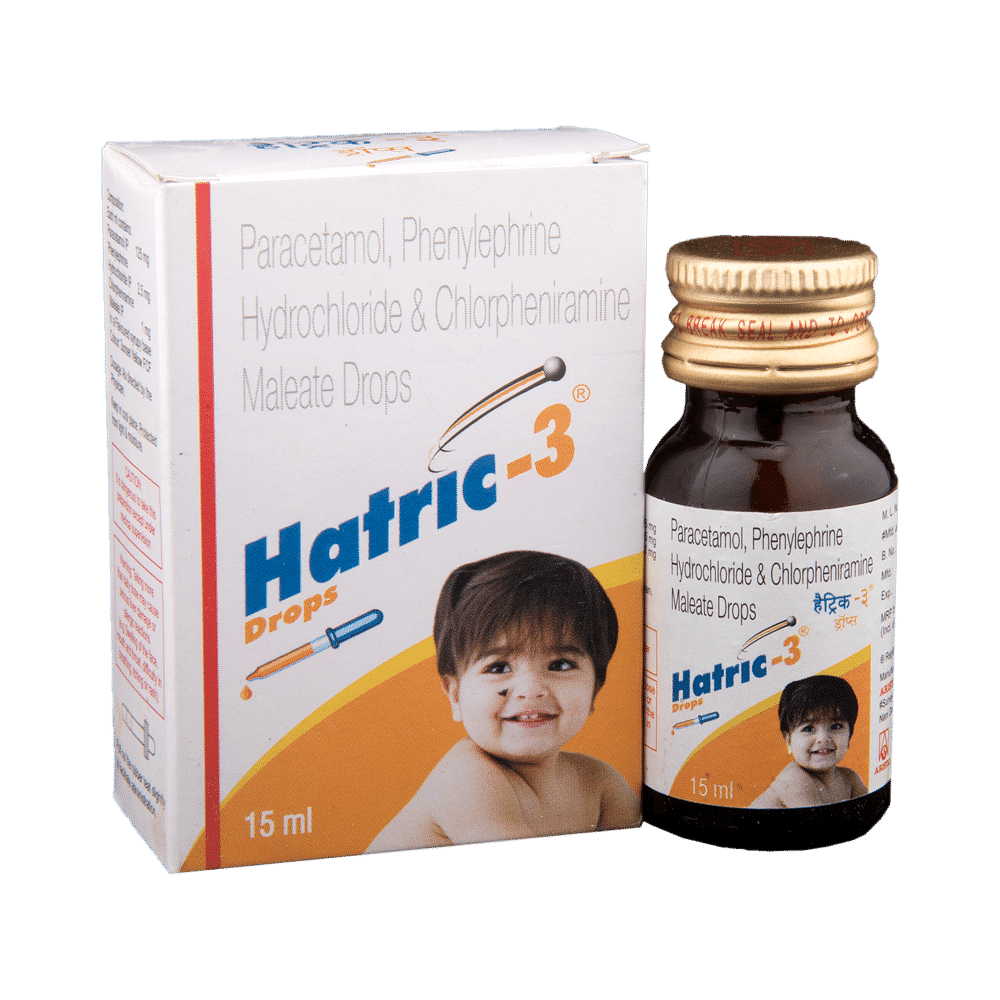
Nazofed Oral Drops
Manufacturer
Fedley Healthcare Private Limited
Salt Composition
Chlorpheniramine Maleate (1mg) + Paracetamol (25mg) + Phenylephrine (2.5mg)
Key Information
Short Description
Nazofed Oral Drops is commonly prescribed in children to treat common cold symptoms like sore throat, runny nose, cough, sneezing, watery eyes, body ache, and fever.
Dosage Form
Oral Drops
Introduction
Nazofed Oral Drops is a combination of three medicines: Chlorpheniramine, paracetamol, and phenylephrine which relieves common cold symptoms. Chlorpheniramine is an antiallergic that relieves allergy symptoms like runny nose, watery eyes, and sneezing. Paracetamol is an analgesic (pain reliever) and antipyretic (fever reducer). It blocks the release of certain chemical messengers in the brain that are responsible for pain and fever. Phenylephrine is a nasal decongestant that narrows the small blood vessels providing relief from congestion or stuffiness in the nose.
Directions for Use
Ensure your child takes extra care when taking part in physical activities. Never combine Nazofed Oral Drops with other cold and flu medicines as that may lead to side effects. Stop Nazofed Oral Drops and immediately report to the doctor if your child develops an itchy rash, facial swelling, or breathing difficulties.
Safety Information
Side Effects
No common side effects listed.
How it works
Nazofed Oral Drops is a combination of three medicines: Chlorpheniramine, paracetamol, and phenylephrine which relieves common cold symptoms. Chlorpheniramine is an antiallergic that relieves allergy symptoms like runny nose, watery eyes, and sneezing. Paracetamol is an analgesic (pain reliever) and antipyretic (fever reducer). It blocks the release of certain chemical messengers in the brain that are responsible for pain and fever. Phenylephrine is a nasal decongestant that narrows the small blood vessels providing relief from congestion or stuffiness in the nose.
Quick Tips
Clean and disinfect surfaces after sneezing and coughing to avoid allergy Give your child plenty of fluids as it helps to thin and to loosen the mucus in the lungs Restrain your child from having dairy products, coffee, and foods that are spicy and fried. All these can trigger coughing Make your child gargle with warm saltwater Ensure your child takes enough rest
Related Medicines

Wikoryl Oral Drops Mix Fruit

Sinarest Drops

Maxtra P Oral Drop

Coldrest Oral Drops

Fevedot Plus Oral Drops

Alokoff P Oral Drops

Neocold Oral Drops

Levosung P Oral Drops

Hatric 3 Drops

Nosihist Oral Drops
Frequently asked questions
What if I give too much Nazofed Oral Drops by mistake?
Exceeding the recommended dose of Nazofed Oral Drops can lead to serious side effects in children, such as seizures, rapid heart rate, depression, cognitive impairments, and difficulty concentrating. Always use the calibrated cup provided with the medication for accurate dosage. Do not use a kitchen teaspoon as it may result in an incorrect amount.
How can I store Nazofed Oral Drops?
Store Nazofed Oral Drops at room temperature, away from direct heat and light. Keep all medications out of the reach and sight of children to prevent accidental intake.
My child has a cough and fever. Can I give him two medicines together?
Only administer one medicine for cough or cold at a time unless advised by your doctor. This is due to the possibility of multiple ingredients in the same dosage unit, which could lead to an overdose. It's essential to consult with your child's doctor before administering any medication.
Can I give my cough medicine to my child?
Never give your child medications prescribed for adults. Only administer medicines specifically formulated for children, as these are tailored to their needs and can avoid unwanted side effects. Always check the medicine's label before administering it to your child. Follow the prescribed dosage.
Can Nazofed Oral Drops make my child sleepy?
Nazofed Oral Drops may cause mild drowsiness, which can affect a child's sleep patterns. It is not recommended to use this medicine for inducing sleep. If symptoms persist or worsen, consult your child's doctor.


